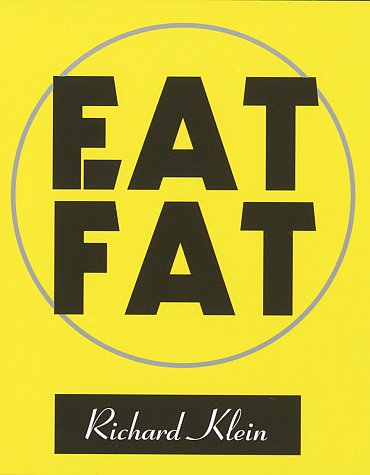Description
In this tour de force the author traces the older, positive meanings of the word “fat.” He analyzes “the thing fat, ” discussing not only the aesthetics of fat but also the nature of fat. He examines “fat sex, ” including representations of the human body designed to arouse people whose taste in beauty is fat. And he explores “political fat, ” i.e., the relation of fat to power.
Amazon.com Review
Klein, author of , is making a profession out of political, and medical, incorrectness. Here he assembles statistics on “healthy fatties,” adds the weight of anecdotal evidence that fatness equals happiness, cites the voluminous depiction of plump beauty in art, and piles on the heft of his own forceful opinions to make a case for fatness as the ideal. Given modern culture’s unhealthy addiction to a vision of waif-like beauty, leading to the extremes of anorexia and bulimia, and the dangers of more routine crash dieting and weight-loss programs, he certainly has a point. Klein anticipates with pleasure the day when the aesthetic of Rubens becomes normative again.
From Publishers Weekly
Klein, a professor of French at Cornell and author of Cigarettes Are Sublime, wants you to feel good about eating animal and vegetable fat, arguing that for most people the medical risks of obesity have been greatly exaggerated. Asserting that there is a wide range of healthy body sizes, he finds an irresistible charm or an aura of imposing gravity surrounding heavies like Orson Welles, Julia Child, Marlon Brando, Elizabeth Taylor and Roland Barthes. He calls this fat-friendly meditation “a postmodern diet book,” and it is larded with playful, self-conscious irony, with literary allusions ranging from Shakespeare to Raymond Carver, as it tracks cycles of fat and thin worship, from prehistoric figurines of plump, fertile Venuses to svelte Nefertiti to the enormously corpulent President William Taft. Klein’s freewheeling smorgasbord samples Americans’ eating habits, supermarket labels, word origins (fat, vat, tub, etc.), the biochemistry of dieting. His investigation of the politics of fat leads from Nero, Louis XIV and weight-gaining President Clinton (who overeats under stress) to adipose byways like the National Association to Advance Fat Acceptance; Fat Girl, a magazine for and about fat lesbians; and the heterosexual ‘zine Plumpers. While his inquiry may not persuade the weight-conscious to stop slimming, it effectively challenges fatphobia and conventional ideas of beauty. Photos.
Copyright 1996 Reed Business Information, Inc.
From Booklist
At five feet eight inches and 220 pounds, culture critic Richard Klein (
Cigarettes Are Sublime, 1993) has stopped trying to lose weight. He’d like the entire country to do the same, which, besides bankrupting the $30 billion dieting industry, would once again make fat a symbol of hale heartiness, a praiseworthy cultural aesthetic, even an amatory inducement. Defying the thin-obsessed crowd, Klein, in modes impish, logical, and incantatory (the capitalized injunction EAT FAT pervades the text), aims at nothing less than the “transvaluing” of fat. Although humorous in tenor, he’s quite serious about this goal, especially when debunking studies of the medical risks of obesity. Health stats aside, Klein is most persuasive and pleasurable when expanding on the honored place of fat in art, from John Falstaff to Rubens to modern famous fatties like Orson Welles. Now that Klein has restored tobacco and fat to the pantheon of pleasure, will alcohol be his next subject? These abstemious times demand it.
Gilbert Taylor
Review
. . . a “postmodern diet book,” one designed not so much to help us to accept our fat as to love it. —
Salon, Stephanie Zacharek
From the Inside Flap
de force the author traces the older, positive meanings of the word “fat.” He analyzes “the thing fat, ” discussing not only the aesthetics of fat but also the nature of fat. He examines “fat sex, ” including re





